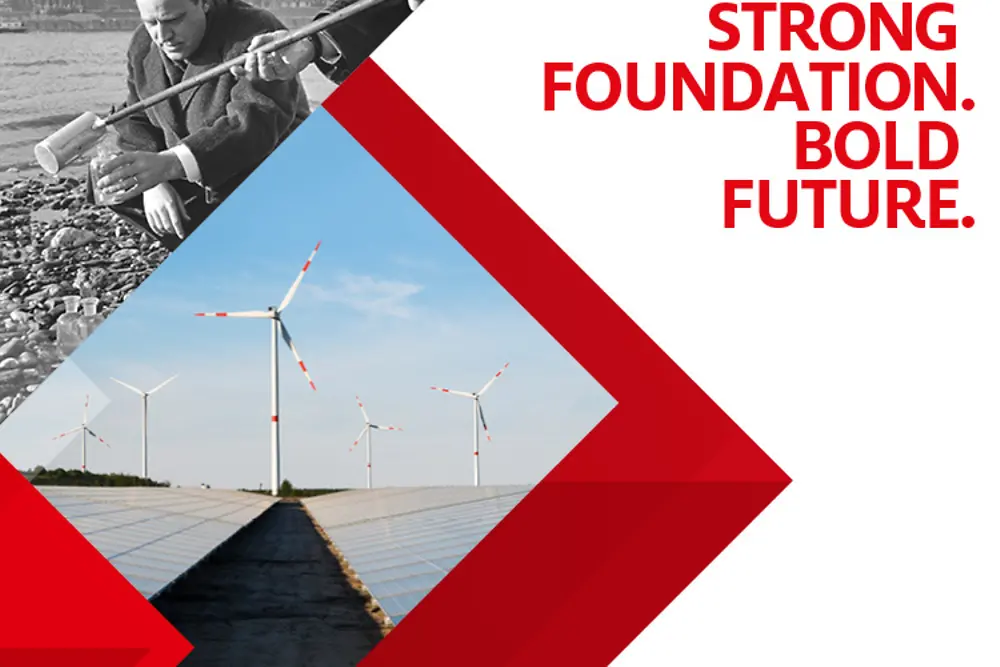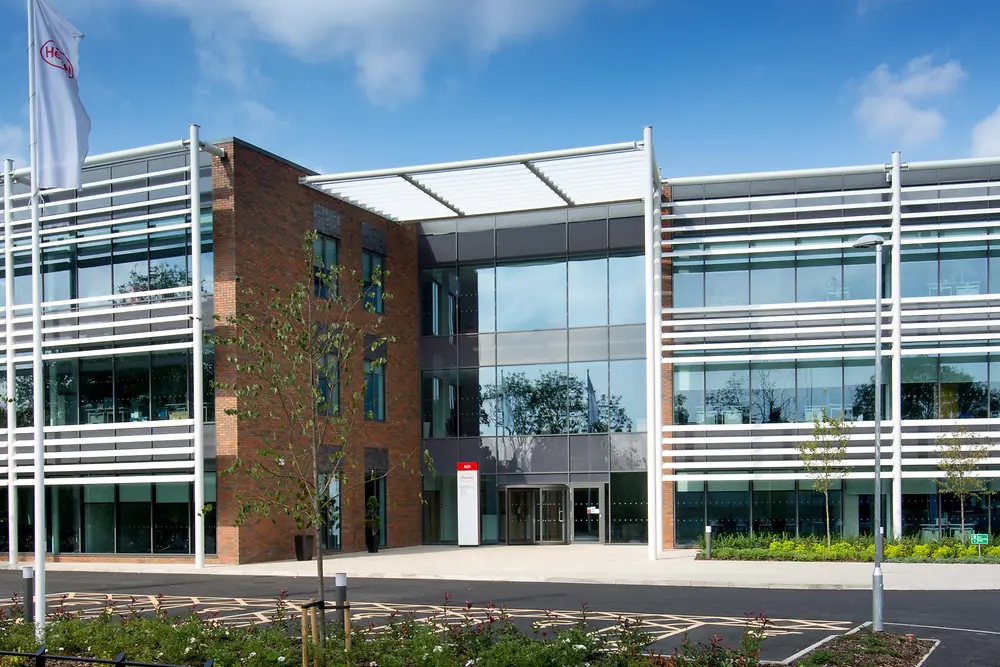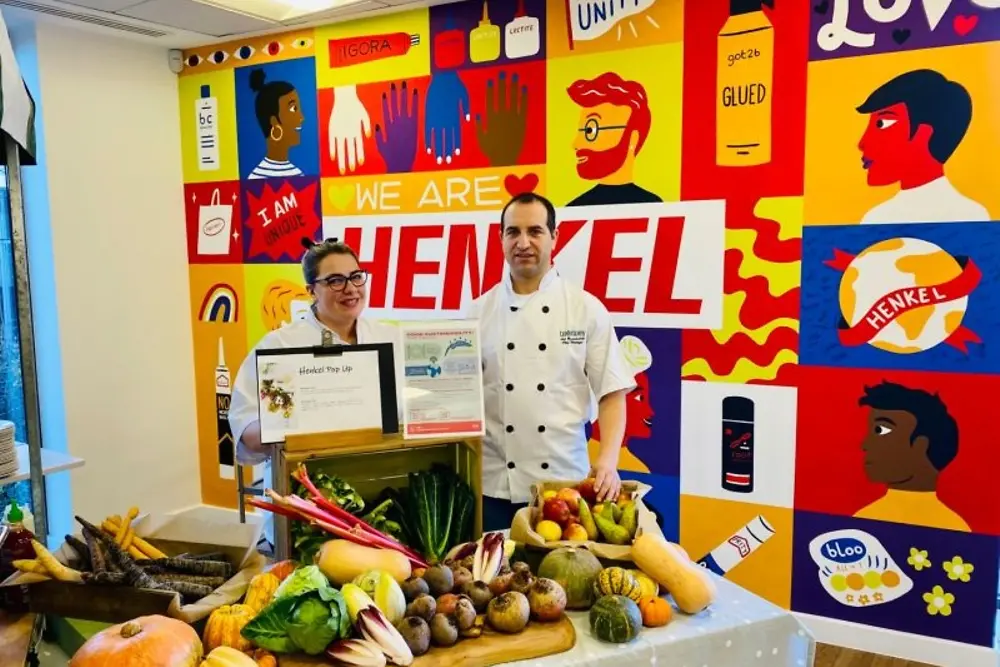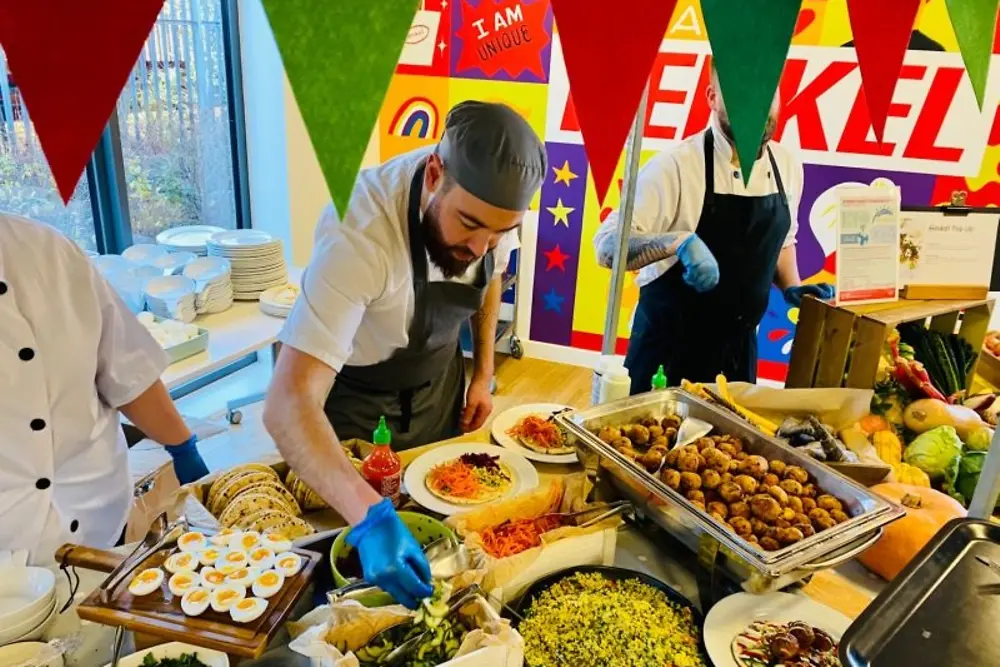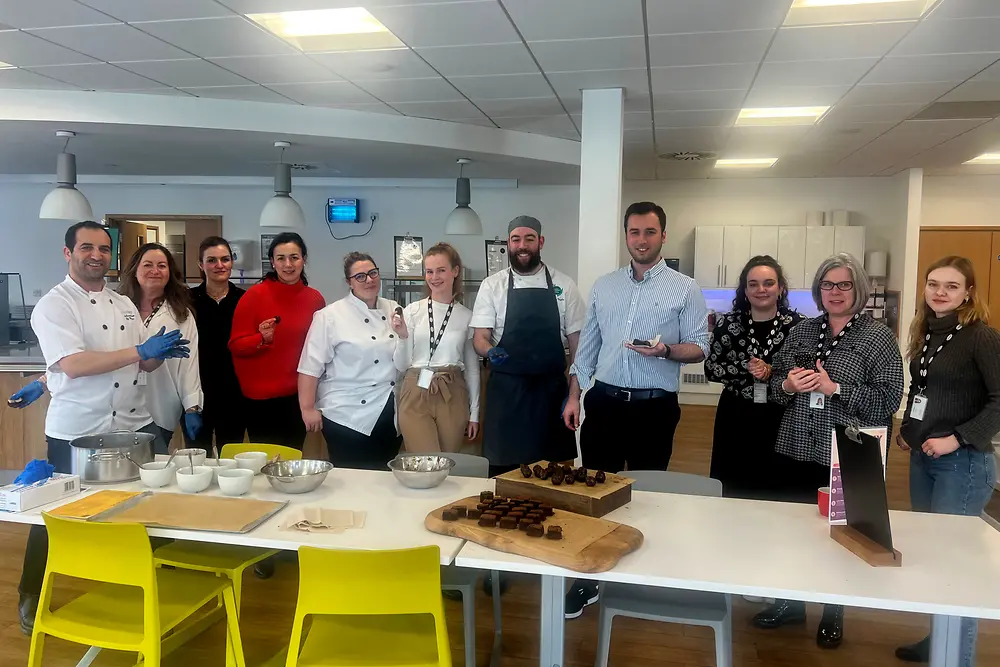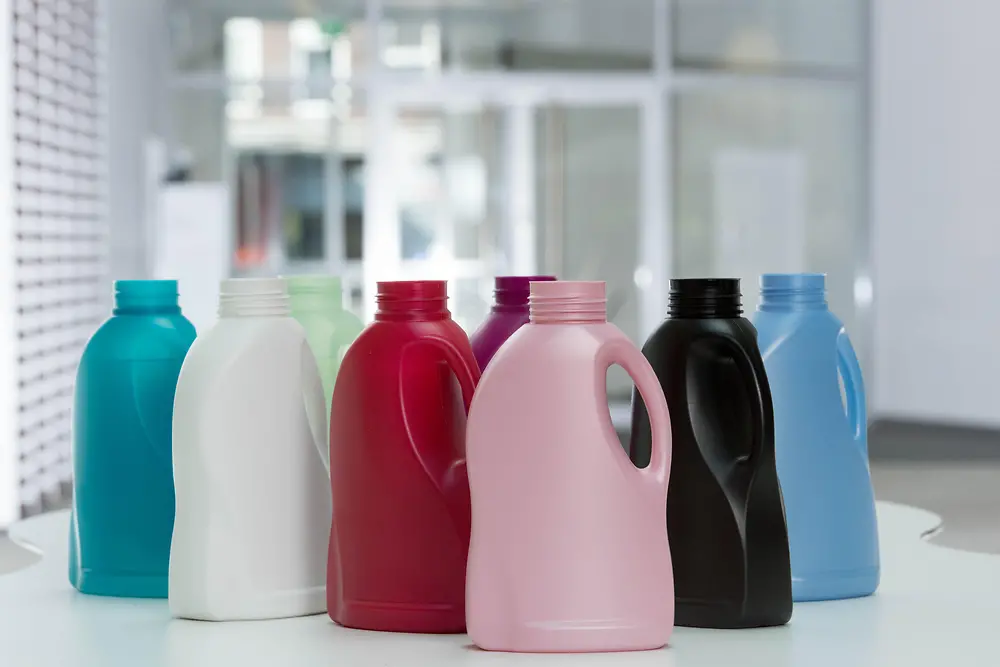Learn more about Henkel Brands & Businesses in UK & Irelands: Includes useful information about the brands, technologies and latest innovations in our business areas: Henkel Adhesive Technologies and Henkel Consumer Brands.
Food Sustainability Awareness at Henkel
If every employee at the Hemel Hempstead headquarters chose to consume a red meat for lunch, it would equate to approximately 400kgs of CO2 a day, which is the equivalent of driving 2,000km. In view of this startling statistic, a sustainable lunch was served to employees with healthy, delicious options that were free from the products of animal agriculture to educate on food’s far-reaching impact.
A balanced diet is vital in providing the body with the necessary nutrients required for physical development, building immunity, and delivering the energy required to stay active throughout the day. A balanced diet has also been shown to reduce the risk of diabetes and heart disease, strengthen bones and teeth, and aid weight management.
Victoria Hampstead, HSC Country Manager, is leading on several sustainability initiatives in the UK. Raising employee awareness of employee environmental footprint, and educating on the positive CO2 impact that could be made through food sustainability, fall under the areas of focus. To engage employees on the topic, a sustainable lunch was organised to demonstrate the delicious meals that can be consumed, whilst also reducing the impact on the planet.
Sustainable food is not only about the food itself. It is a combination of factors including how the food is produced, how it is distributed, how it is packaged and how it is consumed. ’Food miles’ or how far food has travelled, plays a significant role, but it is a lot more complicated than that. When considering the sustainability of food there are many other factors at play. Resource usage, environmental impact, and animal agriculture, which all affect sustainability. As do health considerations and social and economic impact.
Making sustainable food choices helps make a stand against climate change and promotes the welfare of the soil, waterways, and our ecological terrain, so the lunch session educated employees on the sustainable choices to be made to protect their health and the environment. A few of the lifestyle changes shown to make more sustainable food choices include reducing individual meat, fish, or dairy intake, opting for locally produced food or products that have been certified as fair trade, reducing food waste and growing herbs and vegetables for personal consumption where possible.
The lunch options served were completely meat free, and employees could decide between a Malaysian Laksa curry with roasted tofu and coconut broth, and a Moroccan spiced chickpea falafel on Lebanese bread with classic tabbouleh. The tasty dishes showed first-hand that a flavourful meal can be enjoyed without compromising on sustainability The lunch reduced Henkel’s CO2 output by approx. 350kgs for this day, which is the same CO2 output as a flight from London to Germany.
To give those in attendance the opportunity to recreate the lunch and start their journey towards food sustainability, the recipes of the meals provided were made available to download. To gain insight into the impact of food on resource usage, and the environment, use the Food Footprint Calculator to kickstart a food sustainability journey.

